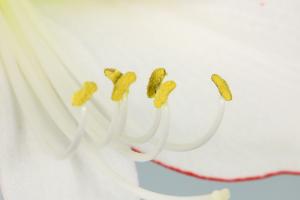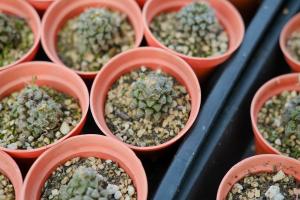Which Organelle Does a Plant Cell Store Water In
Plant cells are unique in that they have several organelles that are essential to their survival. One of these organelles is called the vacuole - an organelle that is found in the cytoplasm of plant cells. The vacuole plays a crucial role in the life of the plant cell and is responsible for various functions such as storage, waste disposal, and maintaining overall cell structure.
The Function of the Vacuole in a Plant Cell
The vacuole in a plant cell is responsible for many vital functions. One of the most important of these functions is storage. The vacuole is used to store various substances like water, enzymes, and other cellular materials. It also plays a significant role in waste disposal, helping to rid the cell of harmful substances and toxic materials that could damage it.
The vacuole is also responsible for maintaining the overall structure of the plant cell. It helps to regulate the cell's turgor pressure - the pressure within the cell that is necessary for the cell to maintain its shape and structural integrity. Additionally, the vacuole contains pigments that give plants their vibrant colors.
The Structure of the Vacuole
The vacuole is a membrane-bound organelle that is found in the cytoplasm of a plant cell. It is typically the largest organelle in the cell, occupying up to 90% of the cell's volume. The vacuole is enclosed by a membrane called the tonoplast, which separates its contents from the rest of the cytoplasm.
The contents of the vacuole can vary depending on the plant's species, age, and environmental conditions. For example, in young plant cells, the vacuole may contain large amounts of nutrients, while in mature plant cells, the vacuole may contain only water and fewer nutrients.
How the Vacuole Stores Water
The vacuole is primarily responsible for storing water in plant cells. It accomplishes this by pumping ions out of the cell, creating a gradient that causes water to flow into the vacuole. This process is called osmosis and is key to maintaining the cell's turgor pressure and overall cell structure.
The vacuole can store large amounts of water, serving as a reservoir for the plant cell during times of drought or water scarcity. This enables the plant to survive longer without water and to bounce back more quickly when water is once again available.
The Importance of the Vacuole for Plants
The vacuole is a vital organelle for plant cells and is key to their survival. Without the vacuole, plants would not be able to store water or maintain their structural integrity. The vacuole also plays an essential role in waste disposal, ensuring that the cell remains healthy and functional.
Overall, the vacuole is an essential organelle for plant cells, allowing them to survive and thrive in a wide range of environmental conditions. Understanding the role of the vacuole in plant cells can help us appreciate the many ways in which plants have evolved to survive and adapt to their surroundings.

 how many times do yo...
how many times do yo... how many planted tre...
how many planted tre... how many pine trees ...
how many pine trees ... how many pecan trees...
how many pecan trees... how many plants comp...
how many plants comp... how many plants can ...
how many plants can ... how many plants and ...
how many plants and ... how many pepper plan...
how many pepper plan...































